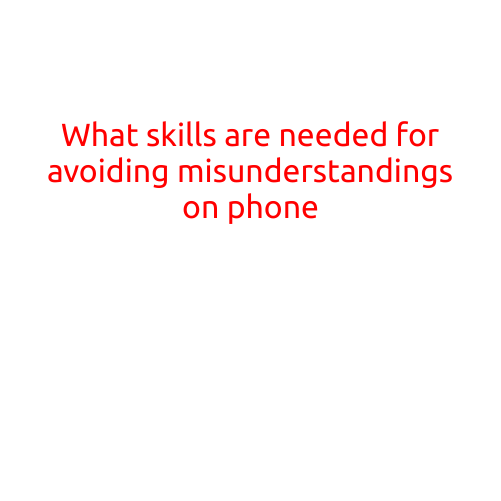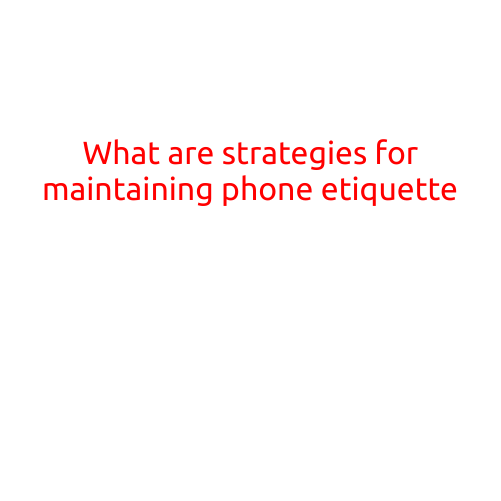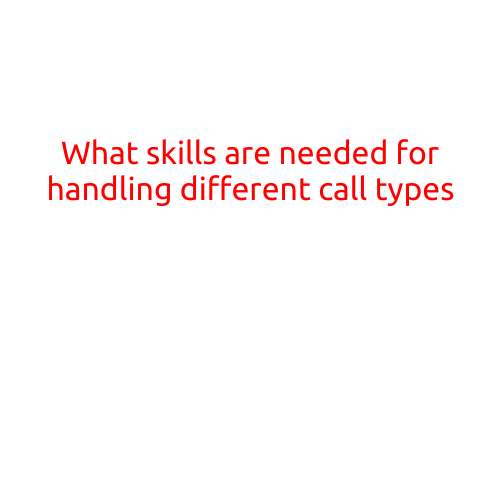
What Skills are Needed for Avoiding Misunderstandings on the Phone?
In today’s digital age, phone communication has become an essential part of our daily lives. Unfortunately, misunderstandings can still occur due to the limitations of verbal communication. Effective phone communication requires a combination of skills that can help individuals avoid misunderstandings and ensure smooth conversations.
1. Active Listening
Active listening is the foundation of successful phone communication. It involves paying attention to the speaker, understanding their perspective, and maintaining eye contact (even if you’re not in the same room). To practice active listening, focus on the speaker, avoid interrupting, and ask clarifying questions. This helps you stay focused and comprehend the message accurately.
2. Clear Communication
Clear communication is essential for avoiding misunderstandings. When speaking, use a clear and concise tone, avoid jargon and technical terms, and speak slowly. Also, repeat back what you’ve understood to ensure clarity and prevent misinterpretations.
3. Empathy and Understanding
Empathy and understanding are crucial skills for effective phone communication. Put yourself in the other person’s shoes and try to understand their perspective. This helps to build trust, reduce misunderstandings, and promote open communication.
4. Nonverbal Cues
Nonverbal cues, such as tone of voice, pitch, and volume, can greatly impact the intended message. Be aware of your nonverbal cues and adjust them according to the situation. For example, a calm and patient tone can help diffuse tense situations.
5. Self-Awareness
Self-awareness is vital for avoiding misunderstandings. Be aware of your emotions, biases, and assumptions to prevent miscommunications. Take a moment to reflect on your words and actions before responding to a situation.
6. Patience and Flexibility
Phone conversations can be unpredictable, and misunderstandings can arise. Practice patience and flexibility when communicating over the phone. Be willing to adjust your approach and adapt to changing circumstances to ensure successful communication.
7. Multitasking Management
Multitasking is a common problem when using phones, as many people engage in conversations while performing other tasks. To avoid distractions and minimize misunderstandings, try to focus on the conversation and avoid multitasking.
8. Conflict Resolution
Conflict resolution is an essential skill for effective phone communication. Know how to address and resolve conflicts in a constructive manner, using assertive and respectful language.
Conclusion
Avoiding misunderstandings on the phone requires a combination of essential skills, including active listening, clear communication, empathy, nonverbal cues, self-awareness, patience, flexibility, and conflict resolution. By honing these skills, individuals can improve their phone communication effectiveness, build stronger relationships, and reduce misunderstandings. Whether personal or professional, effective phone communication is crucial for success in today’s digital age.





